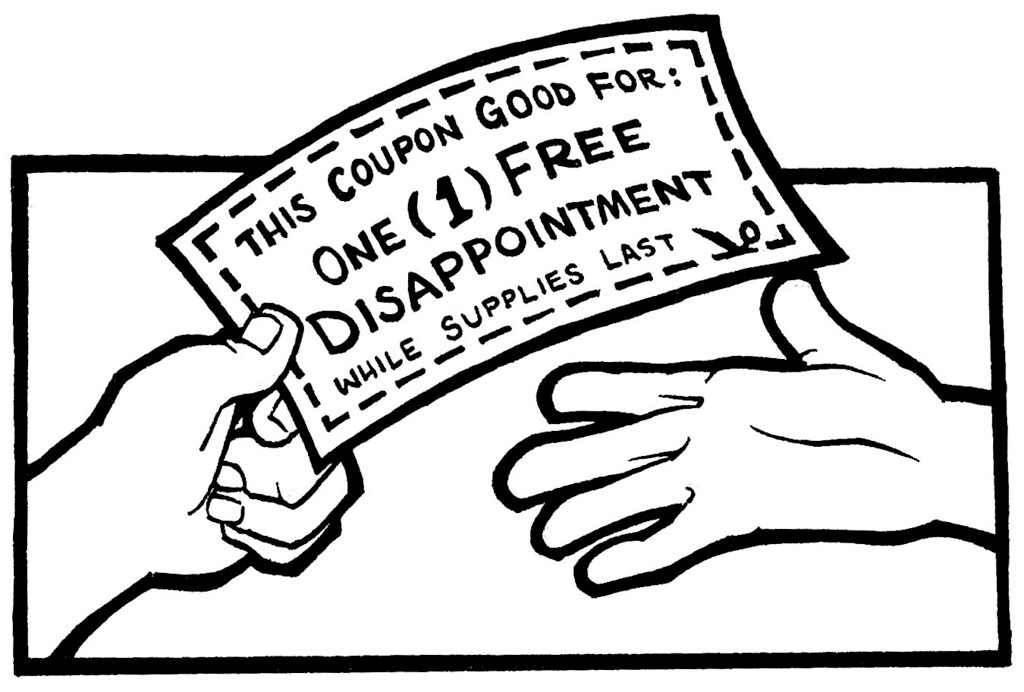Disappointment is the experience you feel when you consider ‘what might have been,’ in contrast to your present circumstances. It is the recognition that you don’t have, didn’t get, or will not achieve what you wanted, as well as a way in which sadness is experienced. It is the psychological reaction to an outcome that does not meet your expectations.
Everyone faces disappointment in life, and we should not learn ways to avoid it but, rather, how to process it when it takes place. Here are four suggestions for processing disappointment:
- Accepting reality – It is easy to try to blame people or circumstances for your disappointment, yet it rarely helps us to move forward. It is more important to spend time reflecting on what led you to this point. What exactly triggered your emotions? What does the disappointment really mean to you? Are you partially agreeing with the person who disappointed you? What would you or the world be like if you let go of your negative feelings? Do you think that holding on to your negative feelings helps anyone? This takes a different amount of time for each person, so give yourself the necessary time and space to ask yourself these questions. Admit that you did not get what you wished for, or are not where you expected to be, and allow your emotions to arise. Often anger and protest are present first.
- Embracing sadness – Since anger allows you to continue thinking about what could have been, it is valuable to come to a place of sadness. Often, this is not our first response to disappointment, but getting here is vital, as it offers a release of the emotions that keep you from moving forward. Sadness is the recognition that your feelings are valid, but remaining in sadness, or wishing things could have gone differently, will not serve you well. You have lost something, so cry the tears, and feel the sadness as it comes.
- Reframe your experience to gain perspective – We may get caught up with one idea, person, or experience, much like focusing on one part of a puzzle so much so that we lose sight of the rest. Instead of doing this, try asking for another persons’ outlook or viewing your experience from a different perspective. Disappointment took place, but it only makes up a part of your story, so take the time to look at the wider narrative, and place your disappointment within it. In the entirety of this process, do not beat yourself up; claim your experience without judgment.
- Choose to Hope – Disappointment happens, but it does not have to keep you from dreaming, making plans, trusting again, and hoping. Hope is made up of excitement, and anticipation about the future. It can be a vulnerable feeling as you acknowledge the potential for disappointment, failure, or loss. We should not allow disappointment to keep us from choosing to hope.
Although it is hard, I have decided to not let disappointment rob me of experiencing the beauty of life. I have decided to hope, and cling to hope, because of its beauty, and sheer rawness. Our hope can be stronger than the possibility of disappointment. I want to live a life of hope, one in which I have dreams and expectations because I live a life in hopes of a better future. A place where every child has a home, where there isn’t abuse and addiction, a place where people flourish and live in partnership with other humans. I hope that together we can move past our disappointments and hold on to hope as we walk through the experiences of life.


